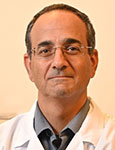
Purpose
The Epidemiology and Genomics Research Program (EGRP) hosts a quarterly webinar series, "Infectious Agents and Cancer Epidemiology Research." The goals of this series are to:
- Highlight emerging and cutting-edge research related to infection-associated cancers that could be applied to cancer epidemiology;
- Share scientific knowledge about technologies and methods that may enhance and facilitate infection-associated cancer epidemiology research; and
- Foster cross-disciplinary discussions on infectious agents and cancer epidemiology.
Any interested individual is invited to participate. The webinars are free, but require pre-registration. Each presentation will be about 30 minutes in length and allow for 30 minutes of discussion moderated by EGRP staff. Instructions for connecting to the webinars will be sent via e-mail to individuals who register.
NIH registrants who attend more than 45 minutes of the webinar are eligible for 1 ESA credit and a certificate of completion. The certificate will be sent to the email address provided at the time of registration. If you have questions about ESA accreditation for Infectious Agents and Cancer Epidemiology Research webinars, please email iaandcancer@mail.nih.gov.
Background
Infections are established etiologic factors in several cancers and contribute significantly to the global cancer burden. In 2008, it was estimated that 16.1% of newly diagnosed cancers were attributable to infections. The translational potential for this area of research is significant, as the identification of infections associated with cancers may lead to interventions such as treatment or vaccines to prevent associated cancers. As discussed in a blog post by NCI, DCCPS, EGRP, epidemiologic studies on the interplay of infectious agents and cancer induction could play important roles in answering both old and new questions, which could augment current knowledge and open new areas of research. Understanding the role of infectious agents in cancer may result in discoveries that could lead to better diagnosis, prevention, and treatment of cancers, particularly in resource-poor areas.
Upcoming Topics and Speakers
To Be Rescheduled
How Host Factors Influence the Tumor Microenvironment and Cancer Outcomes in Multiethnic Populations

Wendy Cozen, D.O., M.P.H.![]()
Professor, Division of Hematology, Oncology and Medicine
Professor of Epidemiology, Biostatistics and Public Health
Professor of Pathology
University of California, Irvine School of Medicine
Dr. Wendy Cozen’s research program focuses on determinants of risk and prognosis for mature B-cell neoplasms. Her work emphasizes the roles of genetics, immune function, infection, tumor microenvironment, and health disparities in lymphoma and myeloma. Among her major contributions, Dr. Cozen led a large twin study investigating the late onset effects of Hodgkin lymphoma and why this disease may affect some individuals and not others. She and her team found that individual differences in immune response, specifically through cytokine secretion, may be involved in the development of Hodgkin lymphoma. Through a large international genome-wide association study, she and her collaborators found distinct genetic subtypes linked to elevated risk for non-Hodgkin lymphoma, with implications for diagnosis and treatment. She has also studied veterans diagnosed with lymphoid malignancies, comparing survival of those exposed to Agent Orange in the past to survival of unexposed veterans. In another NIH-funded project, Dr. Cozen is investigating how genetic and immunologic factors drive a myeloma precursor condition (MGUS) in a diverse 3,600 patient cohort. Her career reflects decades of dedication to understanding the causes and outcomes of hematologic cancers.
Past Topics and Speakers
EGRP is dedicated to ensuring that our recorded webinars comply with Section 508 of the Rehabilitation Act (as amended) for individuals who are hearing and sight impaired. If you encounter any recorded webinar that does not meet your needs, please feel free to reach out to NCIEpiCommunications@mail.nih.gov.
2024
Immune Resilience: Why Some People Get Sick Less Often and Live Longer

Sunil Ahuja, MD![]()
Professor of Medicine, University of Texas Health Science Center at San Antonio
Director, Veterans Administration (VA) Center for Personalized Medicine, South Texas Veterans Health Care System
In this webinar, Dr. Ahuja discussed how optimal immune resilience is a trait that is observed across the age spectrum, more common in females, and aligned with a specific immunocompetence-inflammation balance linked to favorable immunity-dependent health outcomes, including during cancer.
The Role of Interferon Lambda 4 Genotype in Hepatitis C Virus Infection and Hepatic Inflammation

Thomas R. O’Brien, MD, MPH
Senior Investigator
Infections and Immunoepidemiology Branch
Division of Cancer Epidemiology & Genetics
National Cancer Institute
Dr. O’Brien’s research program has targeted viruses that cause cancer, especially hepatitis C virus (HCV), through interdisciplinary studies that emphasize human genetics. His collaborative studies led to the discovery of interferon lambda 4 (IFNL4) and the loss of function IFNL4-ΔG/TT variant. Genotype for IFNL4-ΔG/TT underlies profound differences in HCV clearance, both spontaneously and in response to treatment. A higher frequency of the IFNL4-ΔG allele accounts for the lower rates of HCV clearance observed in people of African ancestry. Hepatic inflammation and fibrosis form the common pathway for development of hepatocellular carcinoma due to many etiologies.
Dr. O’Brien’s presentation described his current work looking at the role of IFNL4 genotype in hepatic inflammation due to HCV infection and other causes of chronic hepatitis.
2023
Interpreter of Maladies: Application of Machine Learning to Precision Oncology

Dr. Anant Madabhushi, PhD![]()
Robert W. Woodruff Professor of Biomedical Engineering, Emory University
Georgia Institute of Technology and Research Career Scientist, Atlanta VA Medical Center
Dr. Anant Madabhushi and his team have been developing computerized knowledge alignment, representation, and fusion tools for integrating and correlating heterogeneous biological data spanning different spatial and temporal scales, modalities, and functionalities. These tools include computerized feature analysis methods for extracting subvisual attributes for characterizing disease appearance and behavior on radiographic (radiomics) and digitized pathology images (pathomics). Over the last dozen years, there has been substantial progress in developing new radiomic and pathomic approaches for capturing intra-tumoral heterogeneity and modeling tumor appearance. Specifically, Dr. Madabhushi discussed how these radiomic and pathomic approaches can be applied to predicting disease outcome, recurrence, progression, and response to therapy in the context of prostate, brain, rectal, oropharyngeal, and lung cancers.
Varicella Zoster Virus in Glioma Etiology and Survival: Evidence of a Beneficial Virus?

Dr. Stephen Francis, PhD, MS![]()
Associate Professor
Neuro and Molecular Epidemiology Lab
Department of Neurological Surgery
Weill Institute of Neurosciences
University of California, San Francisco
Gliomas comprise ~ 80% of malignant central nervous system tumors and cause ~16,000 deaths in the United States every year, yet the etiology remains largely unknown. Varicella-zoster virus (VZV), responsible for chicken pox and shingles, is the only viral infection consistently linked with a reduced risk of adult glioma. Decades of research have shown that an antibody response to VZV infection is associated with lower adult glioma risk, the only virus that has been robustly associated with a reduced risk of any cancer. Dr. Francis and his research team recently extended the glioma-VZV inverse risk association into prognosis, where they show that strong antibody response to VZV is associated with improved survival. They also show that a germline polymorphism in the HLA that is known to alter VZV reactivity may substantially modify this association, which suggests a major histocompatibility complex (MHC)-mediated mechanism. This webinar presentation detailed Dr. Francis’ current research including investigations into a potential mechanism and therapeutic options that may have relevance for other cancers beyond glioma.
Hyper or Hypo? What Are the Effects of Kaposi's Sarcoma-Associated Herpesvirus on Cellular CpG DNA Methylation?

Meir Shamay, PhD![]()
Associate Professor
Head, Daniella Lee Casper Laboratory in Viral Oncology
Azrieli Faculty of Medicine in the Galilee
Bar-Ilan University
In this session, Dr. Meir Shamay discussed Kaposi’s sarcoma-associated herpesvirus (KSHV), also known as human herpesvirus 8 (HHV-8), one of the well-known human cancer-causing viruses. Dr. Shamay’s lab performed several global methylation studies to reveal the effect of KSHV on the epigenome. The analysis of de-novo infection, primary effusion lymphoma (PEL), Kaposi’s sarcoma (KS), and a mouse model for KSHV dependent tumorigenesis revealed a coherent picture of specific genes that were differentially methylated and expressed, with up-regulation of transposable elements. These findings opened new avenues for the detection and treatments of KSHV-associated malignancies.
2022
Opportunities for Cancer Research in the MACS/WIHS Combined Cohort Study

Shehnaz Hussain, PhD, ScM![]()
Associate Director of Population Sciences
University of California Davis Comprehensive Cancer Center
The Multicenter AIDS Cohort Study (MACS)/Women’s Interagency HIV Study (WIHS) Combined Cohort Study (MWCCS) is a collaborative research effort that integrates two ongoing longstanding, longitudinal studies being conducted across the U.S. at 13 clinical sites that aims to understand and reduce the impact of chronic health conditions that affect people living with HIV, including cancer. Dr. Hussain discussed opportunities for novel cancer epidemiology research utilizing the resources of the MWCCS.
Overview of Two NCI Programs: The Informatics Technology for Cancer Research (ITCR) Program and Serological Sciences Network (SeroNet)

Juli Klemm, PhD
Program Director, Center for Strategic Scientific Initiatives
Director, Informatics Technology for Cancer Research (ITCR) Program
National Cancer Institute (NCI)
In this webinar, Dr. Juli Klemm gave an overview of two trans-NCI programs: the Informatics Technology for Cancer Research (ITCR) Program and the Serological Sciences Network (SeroNet).
The ITCR Program funds investigator-initiated informatics technology development driven by critical needs in cancer research. The presentation provided an overview of the program's goals and funding opportunities, and highlight some of the informatics tools the Program supports.
SeroNet has been established through emergency COVID funding and is leading studies to understand how the immune system responds to SARS-CoV-2 infection and vaccination. The mission and structure of the program and some of the key research findings was discussed.
2021
The Cervical Microbiome in HPV-associated Dysplasia

Anne-Catrin Uhlemann, MD, PhD![]()
Columbia University Department of Medicine
Division of Infectious Diseases
Cervical cancer is the fourth most common female malignancy worldwide. Approximately 90% of cervical cancer deaths occur in low- and middle-income countries (LMIC), especially in sub-Saharan Africa. HPV has been established as the necessary etiological agent of cervical cancer, but it is an insufficient cause of the disease. HPV infection is common, yet only a small proportion develops into precursor lesions. It has recently been suggested that abnormal cervico-vaginal microbiota may play an important role in the development of cervical dysplasia and cervical cancer. These microbiota are thought to prevent effective HPV clearance. In her presentation, Dr. Uhlemann reviewed recent advances in the field of microbiome and HPV research.
Speaking with Microbes: The Oral Microbiome in Relation to Pancreatic Cancer Risk in African Americans

Jessica Petrick, PhD, MPH![]()
Epidemiologist, Slone Epidemiology Center
Assistant Professor of Medicine, Boston University School of Medicine
Pancreatic cancer is the fourth most common cause of cancer death in the U.S. and incidence is increasing. African Americans have the highest incidence and mortality from pancreatic cancer of any racial/ethnic group in the U.S. Poor oral health has been implicated as a risk factor for pancreatic cancer and African Americans are reported to have worse oral health profiles than other racial/ethnic groups in the U.S., largely due to socioeconomic disadvantage and racial discrimination in the health care system, which can reduce access to preventive oral health care. An increased pancreatic cancer risk has been consistently associated with periodontal disease or tooth loss, which in turn correspond with changes in the oral microbiota—the community of microorganisms, including bacteria, fungi, viruses, and archaea, that reside within the oral cavity. This presentation explored the role of oral microorganisms in pancreatic cancer risk and disparities.
2020
Accelerated Control of Cervical Cancer in a Resource Limited Setting

Mark Schiffman, MD, MPH
Senior Investigator
Clinical Genetics Branch, Division of Cancer Epidemiology and Genetics,
National Cancer Institute
Cervical cancer remains one of the few cancers that could be globally controlled, given the advanced understanding of its cause (human papillomavirus or HPV infection), and the development of prevention methods including HPV vaccines and HPV screening tests. Testing for HPV is now the preferred method for cervical cancer screening. An affordable screening strategy includes self-sampled HPV testing, with the risk of precancer provided by a combination of HPV typing and AI-assisted visual evaluation of the cervical appearance. In this webinar, Dr. Schiffman discussed the promise of this approach for resource-limited settings.
Dr. Mark Schiffman is an expert in using molecular epidemiologic research to address cancer health disparities. He has conducted HPV and cervical cancer research for more than 35 years and has received numerous awards and special honors for his work in molecular epidemiology. Dr. Schiffman is currently the co-Principal Investigator of “Accelerated Control of Cervical Cancer,” a research initiative of the Cancer Moonshot.
2019
Helicobacter pylori and Colorectal Cancer: What Is the Association?

Meira Epplein, PhD![]()
Associate Professor in Population Health Sciences
Associate Professor in Medicine
Department of Medicine
Duke University School of Medicine
Meira Epplein is a cancer epidemiologist who studies modifiable risk factors in underserved populations, with a focus on the association of infection and cancer. She is Co-Leader of the Cancer Control and Population Sciences Program at Duke Cancer Institute and Associate Professor of Population Health Sciences in the Duke University Medical Center. Dr. Epplein’s research program is centered around the bacteria Helicobacter pylori, a spiral, gram-negative bacterium that infects approximately 50% of the world’s population and is the single leading carcinogenic infectious agent. Her research seeks to understand the heterogeneity of H. pylori, to determine the most toxigenic forms of the bacteria in order to identify the highest risk populations to be targeted for antibiotic therapy, which has been shown to be effective for risk reduction. At the same time, she is committed to furthering understanding of the co-factors involved in both H. pylori-associated disease risk and benefit. Dr. Epplein has three large NIH-funded grants to explore the epidemiology of H. pylori heterogeneity, including an R01 to further investigate, in a large consortium of prospective cohorts across the United States, the novel finding of host immune response to H. pylori protein-specific antibodies and the risk of colorectal cancer. She is also PI of the pilot study, DISH: The Durham Initiative for Stomach Health, which partners with Durham, North Carolina community members to educate and screen for H. pylori among high-risk individuals and to more finely characterize the prevalence of infection with H. pylori locally and the opportunities for targeted eradication therapy.
Understanding Mechanisms of HIV Persistence During Antiretroviral Therapy (ART)

Mary Kearney, PhD
Head, Translational Research Unit
HIV Dynamics and Replication Program
Center for Cancer Research
National Cancer Institute
Dr. Mary Kearney conducts research on the emergence of HIV drug resistance, the persistence of HIV during antiretroviral treatment (ART), and the sources of rebound viremia after stopping ART. Her studies—in collaboration with colleagues in the HIV Dynamics and Replication Program in NCI’s Center for Cancer Research (CCR)—have demonstrated that a diverse population of HIV-infected cells persist during ART, that some infected cells proliferate despite ART, and that residual viremia during ART can result from viral expression from these cells. Dr. Kearney heads the Translational Research Unit in CCR, which aims to understand the genetics, evolution, and persistence of HIV and to design new approaches towards targeting and killing HIV-infected cells.
Dr. Kearney presented on mechanisms of HIV persistence during Antiretroviral Therapy (ART).
Genomic Assay Development and Validation for Infection-Related Tumors

Margaret Gulley, MD![]()
Director of Molecular Pathology
Department of Pathology and Laboratory Medicine
University of North Carolina-Chapel Hill
Clinical laboratory services are provided to patients with cancer, heritable disease, infectious disease, transplant and immunologic disorders. Research services include development, validation and implementation of gene tests and genomic panels supporting translational research in oncology and virology. Emphasis is on CLIA-grade assay design and validation to generate evidence required to implement novel clinical assays that add value for disease diagnosis, classification, and monitoring.
Dr. Gulley presented on genomic assay development and validation for infection-related tumors.
2018
Adding Microbiome to Epidemiology Studies: Progress, Gaps and Challenges

Rob Knight, PhD![]()
Founding Director, Center for Microbiome Innovation
Professor of Pediatrics, Bioengineering and Computer Science & Engineering, UC San Diego
Dr. Rob Knight is a Fellow of the American Association for the Advancement of Science (AAAS) and the American Academy of Microbiology. He received the 2017 Massry Prize for his microbiome research. In 2015 he received the Vilceck Prize in Creative Promise for the Life Sciences. He is the author of Follow Your Gut: The Enormous Impact of Tiny Microbes; coauthor of Dirt is Good: The Advantage of Germs for Your Child’s Developing Immune System, and he gave a TED talk in 2014, “How Our Microbes Make Us Who We Are.”
His lab has produced many of the software tools and laboratory techniques that enabled high-throughput microbiome science, including the QIIME pipeline (cited over 12,000 times as of this writing) and UniFrac (cited over 7,000 times, including its web interface). He is co-founder of the Earth Microbiome Project; the American Gut Project; and the company Biota, Inc., which uses DNA from microbes in the subsurface to guide oilfield decisions. His work linked microbes to a range of health conditions including obesity and inflammatory bowel disease, enhanced our understanding of microbes in environments ranging from the oceans to the tundra, and made high-throughput sequencing techniques accessible to thousands of researchers around the world.
Dr. Knight presented on the progress, gaps, and challenges of incorporating the microbiome into epidemiology studies.
Hepatitis B Is the Major Etiology of Liver Cancer: Is a Cure Possible? Is It Necessary?

Timothy M. Block, PhD![]()
President and Director, Baruch S. Blumberg Institute and the Hepatitis B Foundation
Timothy M. Block, PhD, is President and Co-founder of the Hepatitis B Foundation; its research arm, the Baruch S. Blumberg Institute; and the Pennsylvania Biotechnology Center. His work, with Baruch S. Blumberg, Anand Mehta, and Raymond Dwek, pioneered the use of glycoproteomics for detection of biomarkers of liver cancer, leading to the use of Golph2/GP73 and core fucosylated serum proteins as risk stratifiers for liver cirrhosis and hepatocellular carcinoma. His work with Ying Su led to using “microDNA” detected in the urine as a cancer marker. More recently, he and his colleagues (Ju-Tao Guo, Hai-Tao Guo, and Andy Cuconati) have identified small molecule inhibitors of hepatitis B virus, which are in clinical phase human testing today.
He is the scientific co-founder of several life sciences companies, co-inventor on 20 issued patents and 23 applications, co-author on more than 240 scholarly papers, and was named a “Visionary in Hepatitis” by the World Hepatitis Alliance in 2017. He was elected into the U.S. National Academy of Inventors and was awarded an Honorary Degree from the Bulgarian Academy of Medicine. He is Adjunct Professor at Geisinger Commonwealth School of Medicine and the University of Pennsylvania School of Medicine.
Dr. Block presented on Hepatitis B as a major etiology of liver cancer.
The Changing Epidemiology of Gastric Cancer in the United States

Maria Constanza Camargo, PhD
Earl Stadtman Investigator, Division of Cancer Epidemiology and Genetics, National Cancer Institute
Dr. Camargo is a cancer epidemiologist originally from Colombia. She earned an MS in epidemiology from the School of Public Health in Mexico, an MHA degree from the Pontificia Universidad Javeriana in Colombia, and a PhD in public health with a concentration in epidemiology from the University of Illinois at Chicago.
Dr. Camargo is an Earl Stadtman Tenure-Track Investigator in the Division of Cancer Epidemiology and Genetics at the National Cancer Institute. Dr. Camargo’s research program focuses on Helicobacter pylori infection, premalignant gastric lesions, and gastric cancer. As a smaller research effort, she conducts studies of esophageal squamous cell carcinoma with an emphasis on the potential etiologic role of infections. In both lines of research, her program combines studies on cancer causation with projects that may have translational application for cancer screening, prevention and treatment.
Dr. Camargo presented on the changing epidemiology of gastric cancer in the United States.
Molecular Epidemiology of Epstein-Barr Virus Co-Infection in Gastric Carcinogenesis

Charles Rabkin, MD
Senior Investigator
Infections and Immunoepidemiology Branch, Division of Cancer Epidemiology and Genetics, National Cancer Institute
Dr. Charles Rabkin earned an ScB and MD from Brown University and an M.Sc. in epidemiology from the London School of Hygiene and Tropical Medicine. He received postgraduate training at the University of Colorado and is board certified in internal medicine and preventive medicine. Before coming to the NCI, he was an Epidemic Intelligence Service Officer and a medical epidemiologist at the Centers for Disease Control and Prevention. He has received PHS Commendation and Unit Commendation Medals for his studies of non-Hodgkin lymphoma and Kaposi sarcoma and the Outstanding Service Medal for the molecular epidemiology of Helicobacter pylori and HIV-related malignancies.
Dr. Rabkin’s research is directed toward understanding the molecular mechanisms underlying associations of chronic infection and inflammation, particularly for gastric cancer and non-Hodgkin lymphoma.
His work in gastric cancer encompasses three sub-projects on the pathogenic microbes, modifying host factors and intermediate markers with potential for screening of gastric cancer and pre-neoplastic lesions. He has a particular focus on the Epstein-Barr virus (EBV) as a co-factor with Helicobacter pylori, the established cause of most cancers of the noncardia stomach. His work in Non-Hodgkin lymphoma focuses on the acquired and inherited abnormalities of immune cells that may contribute to their malignant transformation.
Dr. Rabkin presented on the molecular epidemiology of Epstein-Barr virus co-infection in gastric carcinogenesis.
2017
Shifting Trends in Cancer Risk and Burden Among People Living with HIV in the United States

Meredith Shiels, PhD, MHS
Investigator
Infections and Immunoepidemiology Branch, Division of Cancer Epidemiology and Genetics, National Cancer Institute
Dr. Shiels' research focuses on trends in cancer incidence and mortality, and the contribution of risk factors to these trends. She has a particular expertise in understanding cancer risk and burden among HIV-infected people, and is the co-Principal Investigator (PI) of the NCI’s HIV/AIDS Cancer Match Study. In this webinar, Dr. Shiels presented on the shifting trends in cancer risk and burden among people living with HIV in the United States.
HPV Natural History in HIV+ Women and Its Clinical Implications

Howard D. Strickler, MD, MPH![]()
Investigator
Head of the Division of Epidemiology and Harold & Muriel Block Chair in Epidemiology
Department of Epidemiology and Population Health, Albert Einstein College of Medicine
Dr. Howard Strickler presented on the HPV natural history in HIV+ women and relevant clinical complications. He is internationally recognized for his work on human papillomavirus (HPV) natural history in women who test positive for human immunodeficiency virus (HIV). His research has had a major impact on the current clinical guidelines for cervical cancer screening in women with HIV.
Epidemiology and Perinatal Transmission of Kaposi's Sarcoma-Associated Herpesvirus in Sub-Saharan Africa

Charles Wood, PhD![]()
Director
Nebraska Center for Virology, University of Nebraska-Lincoln, School of Biological Sciences
Dr. Wood's work focuses on HIV/AIDS and associated malignancies. He has served as the PI of several multi-center and multi-national collaborative projects, including serving as a Project Director for Biomedical Research Excellence award with 15-year funding from the NIH National Center for Research Resources (NCRR) to establish and sustain the Nebraska Center for Virology and serving as PI of a Fogarty International training grant on AIDS and associated malignancies. His largest ongoing collaborative research projects involve multiple U.S. research institutions, the University of Zambia School of Medicine and the University Teaching Hospital to study HIV/AIDS and Kaposi's sarcoma-associated herpesvirus (KSHV) transmission, disease pathogenesis, treatment and prevention. In this webinar Dr. Wood presented on the epidemiology and perinatal transmission of KSHV in Sub-Saharan Africa.
The EMBLEM Study: A Resource for Molecular and Immunological Studies of Endemic Burkitt Lymphoma in East Africa

Sam Mbulaiteye, MBChB, MPhil, MMed
Senior Investigator
Division of Cancer Epidemiology & Genetics (DCEG), National Cancer Institute
Dr. Mbulaiteye presented on the Epidemiology of Burkitt's Lymphoma in East-African Children and Minors (EMBLEM) Study, a multi-country and multi-year case-control study that is evaluating the role of repeated malarial infections, malaria genetic variants, and Epstein-Barr virus genetic variants in Burkitt's lymphoma.
2016
HPV Infection in Men, HPV Vaccine Trials, and the Role of HPV in Cancers

Anna R. Giuliano, PhD![]()
Founding Director, Center for Infection Research in Cancer (CIRC)
Moffitt Cancer Center
Dr. Anna Giuliano is the Founding Director of the Center for Infection Research in Cancer (CIRC) at the Moffitt Cancer Center. Her primary research focus is on the relationship between human papillomavirus (HPV) infections and cancer, including cervical, penile, anal, and oral cancers. Her work has contributed to the understanding of the rate at which HPV infections are acquired and cleared, the proportion that progress to disease, and HPV vaccine protection against multiple diseases in women and men. Dr. Giuliano presented on HPV infection in men, HPV vaccine trials, and the role of HPV in cancers.
Cutaneous Viral Infections as Potential Risk Factors for the Development of Non-Melanoma Skin Cancers

Dana E. Rollison, PhD![]()
Vice President, Chief Health Information Officer
Associate Member, Department of Cancer Epidemiology, Moffitt Cancer Center
Dr. Dana Rollison is currently the PI of the NCI-funded VIRUSCAN Study, a 5-year, prospective cohort study of cutaneous viral infections, UV exposure and risk of basal and squamous cell carcinomas being conducted among skin cancer screening patients attending the University of South Florida Dermatology Clinic. She is also collaborating with investigators in the Immunology Program to identify markers of immune function that may predispose to both cutaneous viral infections and NMSC. Her primary research focus is the molecular epidemiology of human polyomavirus and papillomavirus infections in relation to cancer. In this webinar, Dr. Rollison discussed cutaneous viral infections as potential risk factors for the development of non-melanoma skin cancers.
Annual Report to the Nation with a Focus on Liver Cancer: Risk Factors and Burden Are Unevenly Distributed in the Population

Sean Altekruse, DVM, MPH, PhD
Epidemiologist, Surveillance Research Program, Division of Cancer Control and Population Sciences, National Cancer Institute
Captain, Commissioned Corps of the U.S. Public Health Service
Dr. Sean Altekruse is an epidemiologist in the Surveillance Informatics Branch (SIB) of the Surveillance Research Program (SRP). His research interests include infection and cancer and prognostic tumor biomarkers. He is also the National Cancer Institute PI for the National Longitudinal Mortality Study. Dr. Altekruse presented on population-based liver cancer surveillance.